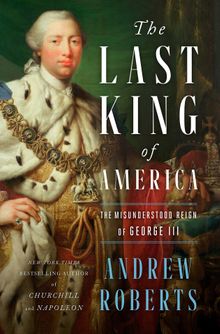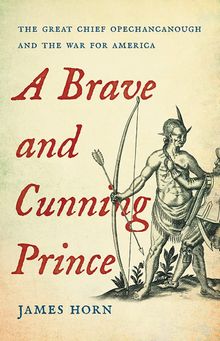Avid readers know the struggle of finishing up an exhilarating read, just to find yourself at a loss for what to pick up next. Fortunately for us history buffs, there are plenty of new books to fill that void and keep us on our toes!
We’ve done the legwork for you to unearth the best new releases hitting shelves in October, November, and December of 2021. From the groundbreaking exploits of female reporters during World War II to a striking re-evaluation of King George III, these new history books will hold you over until the next wave of releases.
Release date: October 12

Twelve Caesars
What does power look like? Bestselling author and classicist Mary Beard, best known for her works on Roman history, uses her expertise to examine depictions of Roman emperors over time. She argues that images of power and wealth in the Western world have been defined by these emperors, particularly the figures that she calls the “Twelve Caesars” (including Julius Caesar, Augustus, Caligula, and Nero, among others). As Beard traces these depictions through millennia, the question remains: why do we continue to connect authority to some of the most murderous tyrants in history?
Related: 11 Roman History Books Beyond The Rise and Fall of the Roman Empire
Release date: October 19

The Writing of the Gods
In 1799, a stone slab was discovered in a pile of rubble. It was inscribed with Ancient Greek, Ancient Egyptian hieroglyphs, and another Egyptian script. Upon its discovery, it became clear that this slab, which became known as the Rosetta Stone, would be the key to finally deciphering the lost language of the ancient pharaohs. In The Writing of the Gods, Edward Dolnick recounts the race between two scholars, one French, one British, to decode the stone. Only one could win glory for himself and his country in this battle between intellectual rivals and two global superpowers.
Release date: October 26

The Shattering
National Book Award winner Kevin Boyle’s The Shattering begins in the idyllic late 1950s, when postwar Americans enjoyed a general sense of stability and prosperity. The book ends in the early 1970s with a nation starkly divided into lines so deep they continue into the modern day.
Related: Explore the 20th Century Through Martin Gilbert's Best Books
Boyle traces how the 1960s transformed America in ways both good and bad, and how the events of that decade shaped the character of the country for years to come. He covers the major debates of the era over race, sex, and war with an important sense of empathy for his subjects, allowing readers to get into the minds of the politicians and everyday people who made history.
Release date: November 2

The Correspondents
The Correspondents follows six female journalists who covered the front lines of World War II while fighting their own battles against bureaucratic restrictions and sexism. Judith Mackrell sheds light on the untold stories of these women who risked everything to report on WWII. Among them are Martha Gellhorn, who beat her husband Ernest Hemingway to the scoop on D-Day by sneaking onto a Red Cross ship bound for Normandy, and Sigrid Schultz, who hid her Jewish heritage in order to stay in Germany and expose the horrors of the Nazi regime. The Correspondents is a riveting story of women who revolutionized journalism.
Release date: November 9

The Last King of America
History has not remembered King George III of England fondly. In addition to being the king who drove the American colonies away, “Mad King George” is also commonly characterized as a heartless tyrant. Author Andrew Roberts argues that this unflattering image is more the result of well-publicized attacks from American revolutionaries like Thomas Paine and Thomas Jefferson than a realistic portrait of who George III really was.
Related: 11 Revealing Revolutionary War Books
Instead, Roberts, the New York Times bestselling author of biographies of Napoleon and Winston Churchill, paints a portrait of a wise and empathetic ruler who found himself on the wrong side of history while also dealing with a debilitating mental illness.
Release date: November 16

A Brave and Cunning Prince
In the mid-1500s, Spanish explorers returned from an expedition to the Chesapeake Bay having kidnapped a young indigenous child from the area. The child, who would become known to the English as Opechancanough, was raised a Catholic and returned home as an adult with a group of Jesuits to establish a mission. Upon arriving, he organized a war party and killed his captors. This was just the first incident in Opechancanough’s lifelong campaign to keep European settlers away from his homeland, the fascinating details of which are examined in this book.
Release date: December 7

Citizen Cash
Johnny Cash was an icon of American country music known for hits like “I Walk the Line” and “Ring of Fire”. In Citizen Cash, award-winning historian Michael Stewart Foley argues that he was also one of the most important political artists of his time. Foley dives deep into Cash’s often misunderstood politics, concluding that his were based more on emotion and empathy than ideology. This book provides fresh insight into the politically fraught decades of the mid-20th century through the eyes of a giant of American culture.
Release date: December 14

Agent Sniper
In Agent Sniper, journalist and filmmaker Tim Tate unveils the thrilling story of a Cold War-era spy who has been all but forgotten. In the early days of the Cold War, Michal Goleniewski was what the CIA called “one of the West’s most valuable counterintelligence sources.” He smuggled thousands of Soviet documents to the West and exposed over 1,600 undercover Soviet agents, but was later abandoned by the US government due to doubts about his character. Through intense investigative work, Tate tells Goleniewski’s story, most of which has remained hidden until now in still-classified CIA and MI5 documents.
Related: Sidney Reilly, the Infamous Spy Who Inspired James Bond
.jpg?w=3840)







